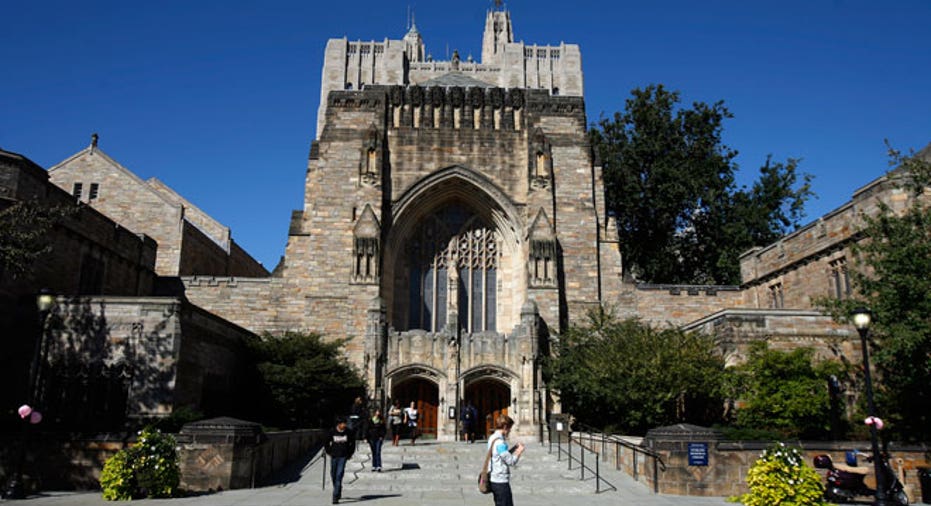6 Credit Card Mistakes Students Make

College students live in a sometimes-confusing world between childhood and adulthood.
On one hand, young adults attending college away from home often live in supervised dormitories as they begin to take on some of the responsibilities of adulthood. On the other hand, those 18-year-olds (and older) are granted nearly all of the same rights and responsibilities of adults.
So when it comes to credit card usage, students often make mistakes that more experienced cardholders are more likely to avoid (or at least to know better than to make). Here are six of the worst mistakes that students make when they start using credit cards.
1. Carrying a Balance
If parents could get their college-age children to follow just one piece of financial advice, it should be to pay their credit card statement balances in full. Students may feel like they can cut their immediate expenses by paying the minimum payment, or perhaps a little more, but interest charges will accumulate very quickly on past and future charges. Unfortunately, many parents will be in a poor position to offer this advice, as about two-thirds of all credit card users carry a balance on at least one of their credit cards each month. And don't forget that credit card debt can have a major impact on your credit score too. If you want to see how your debt is affecting your credit scores, you can see two of them for free every month on Credit.com, and get some tips on how to build good credit.
2. Missing Payments (or Making Them Late)
Between attending classes, studying, and all of their other activities, college students can be pulled in many different directions. Add to that their group living environment, frequent address changes and an irregular academic calendar, and it is easy to see how students can accidentally fail to make a payment on time. To avoid costly late fees and penalty interest statements, students can create electronic reminders of their payment due dates and log into their accounts online to view their statements. Fortunately, most card issuers now offer both email and text alerts.
3. Paying Your Tuition With a Credit Card
It used to be that many colleges accepted tuition payments with a credit card, and savvy parents might earn rewards for paying that way. These days, many schools add a substantial processing charge when tuition and fees are paid with a credit card, typically more than the rewards are worth. Worse, some students attempt to finance their education by charging their tuition and carrying a balance. This is a very risky strategy, as credit cards have much higher interest rates than most student loans. And unlike student loans, interest on a credit card is not tax-deductible.
4. Co-Signing for a Friend
Before the Credit CARD Act of 2009, banks could offer credit cards to students who had no income, with the assumption that their parents would pay their bills. Now, applicants under 21 must show their own ability to pay their bills in order to be approved. In response, some students are asking their friends aged 21 and older to co-sign credit card applications. When someone co-signs, or makes a friend an authorized user, that person is putting his or her own credit at stake, as the primary account holder will be responsible for paying the bill. Those who make this mistake put not only their finances and their credit scores at risk, but their friendship as well.
5. Not Calling the Card Issuer
Students and other new credit card users can find these products confusing. When they get hit with fees and penalties after the inevitable mistake, the last thing they want to do is call someone at a big company to talk about it. Unfortunately, that would be a mistake as well. Because the credit card industry competes fiercely to attract and retain customers, card issuers can be very generous and understanding when cardholders need help. Students should be encouraged to call to ask for their interest rate to be lowered, their late fees to be forgiven, or just to learn more about their cards and their options.
6. Shirking Credit Cards Entirely
For as much trouble as students can get into when they misuse credit cards, it is almost as big of a mistake to avoid credit cards altogether. Credit cards are not just secure and convenient methods of payment, they are an invaluable way to build one's credit score. Having a credit card account in good standing allows cardholders to begin to build a credit history. After graduation, having a strong credit history will help students when they need to rent an apartment, get a car or home loan and purchase insurance.
Read More from Credit.com
Your First Credit Card: What You Need to Know
How to Get a Credit Card With No Credit
How to Get a Student Credit Card



















